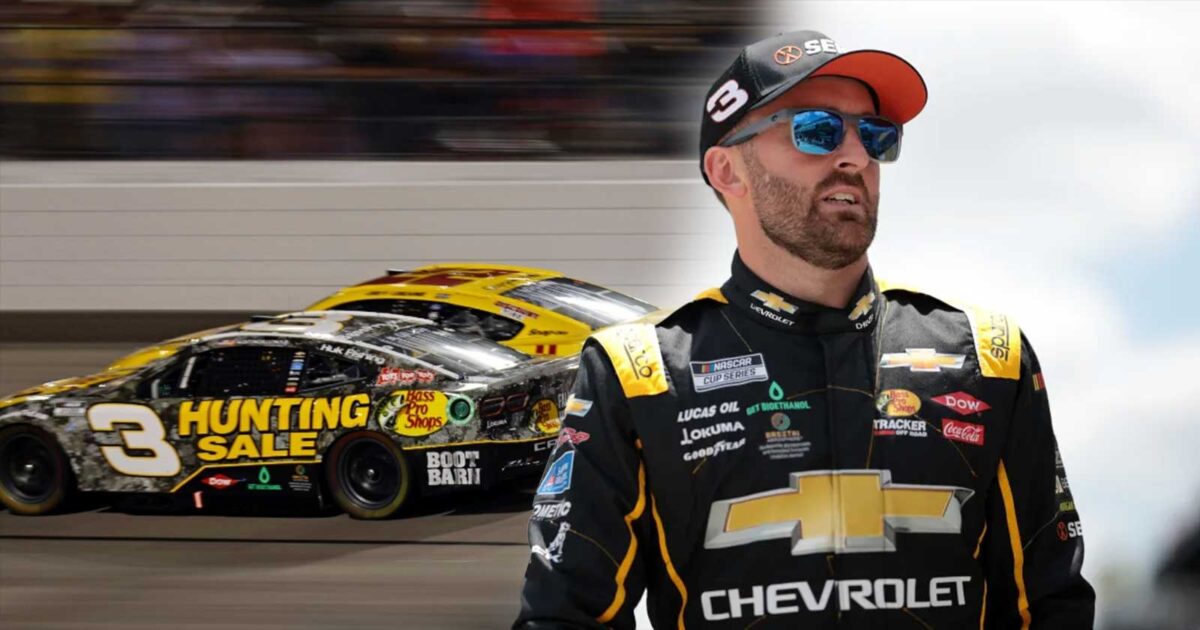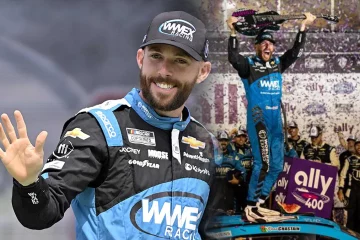
Austin Dillon’s victory at the Cook Out 400 might still bring him a smile as he gazes at the trophy. But that’s where the good news ends for him.
On Wednesday, NASCAR announced a decision that has shaken the standings: Austin Dillon‘s win at Richmond Raceway will not count towards his eligibility for the 2024 NASCAR Cup Series playoffs. This ruling drops Dillon and his No. 3 team from 13th place to a disappointing 31st, nearly 200 points away from a playoff spot.
With only three races left in the regular season—at Michigan, Daytona, and Darlington—Dillon has limited chances to fight his way back into the playoffs. Daytona is his best shot, but if he fails to secure a win, the sting of Richmond will linger long after the race is over.
NASCAR’s decision to revoke Austin Dillon’s playoff eligibility is a critical move. It’s one of the most significant rulings since the introduction of the knockout-style format in 2014. The message is clear: NASCAR will not tolerate reckless behavior, even in the heat of the playoff race.
We’ve seen drivers resort to desperate tactics before. Think back to Ryan Newman’s aggressive move on Kyle Larson at Phoenix in 2014 or Kevin Harvick’s deliberate crash at Talladega in 2015. But Dillon’s actions on Sunday crossed a line. Not only did he fail to make the corner before spinning Joey Logano in turn three, but he also hooked Denny Hamlin coming to the finish line. This kind of behavior is unacceptable, even in the intense battle for playoff spots.
NASCAR has long embraced a “boys have at it” mentality, allowing drivers to push the limits of aggression. However, there’s a fine line between hard racing and reckless driving. Since the dawn of auto racing—and, in fact, all competition—competitors have always sought advantages, whether fair or not. But Dillon’s actions weren’t just a case of taking things too far. They were a blatant abuse of unwritten rules, a desperate move that NASCAR couldn’t ignore.
NASCAR itself isn’t entirely blameless. The “win-and-in” playoff format put Dillon in a position where he felt compelled to make such a risky move. Sitting 32nd in points before the race, Dillon had everything to gain from a playoff berth. Along with a shot at the championship, a playoff spot guarantees a team a significant financial bonus, which is crucial in a sport so dependent on sponsorship.
If NASCAR had stuck with the original Chase format or never adopted a playoff system, Dillon might not have been so desperate. But regardless of the format, Dillon, a veteran in his 11th full-time Cup Series season, should have known better. Intentionally wrecking other drivers is never the answer, no matter the stakes. While he may have a trophy to show for his efforts, what good is it if it comes at the cost of his team’s playoff hopes?
In addition to losing his playoff spot, Dillon was docked 25 points, and his spotter, Brandon Benesch, was suspended for the next three Cup Series races. Benesch’s suspension came after he was caught on the radio encouraging Dillon to wreck Hamlin. With this evidence, NASCAR had no choice but to take further action.
NASCAR made the right call in this case. In a sport where every race impacts the playoffs, there can be no room for the kind of reckless behavior Austin Dillon displayed at Richmond. In today’s NASCAR, where aggression is at an all-time high and young drivers often lack respect for their competitors, this penalty is a rare show of authority.
While NASCAR shouldn’t turn into the stock-car racing version of Formula 1, where even minor contact is penalized, it’s essential to draw the line between hard racing and reckless driving. Richard Childress Racing will likely appeal Austin Dillon’s penalty before the playoffs begin on September 8th, but the chances of overturning the ruling are slim.
NASCAR has set a necessary precedent with this decision. It’s a reminder that while the thrill of the race is important, fair play must always come first.
FAQ:
Why was Austin Dillon’s win at Richmond Raceway not counted towards the NASCAR playoffs?
NASCAR ruled that Austin Dillon’s actions during the Cook Out 400, including intentionally wrecking competitors, were unsportsmanlike. As a result, his win was disqualified from counting towards his playoff eligibility.
How did NASCAR’s decision affect Austin Dillon’s standing in the playoffs?
Dillon was dropped from 13th place to 31st in the playoff standings, pushing him nearly 200 points out of a playoff berth.
Can Austin Dillon still qualify for the NASCAR playoffs?
Dillon has three more races—at Michigan, Daytona, and Darlington—to try and secure a playoff spot. However, it will be a challenging task given his current standing.



